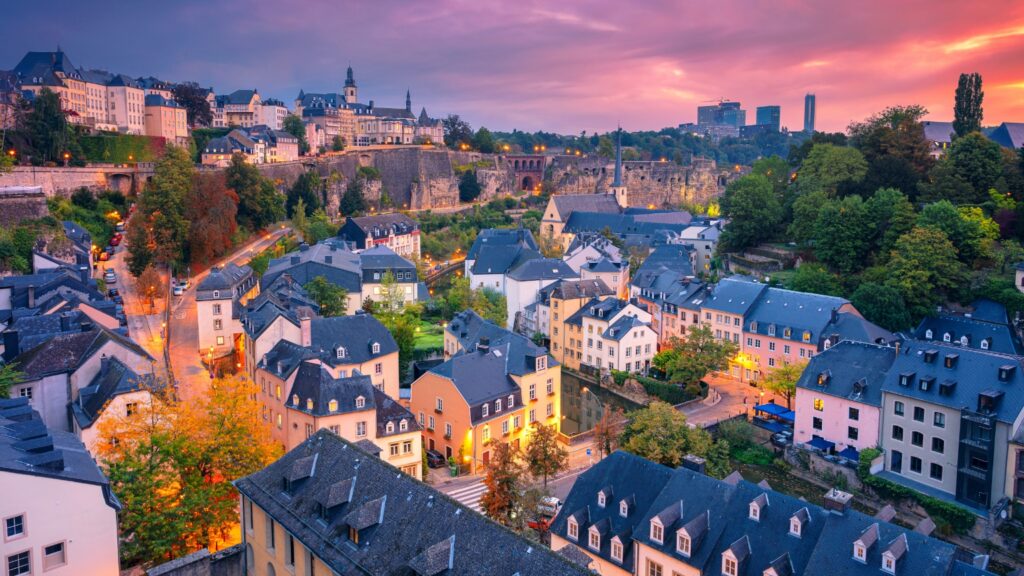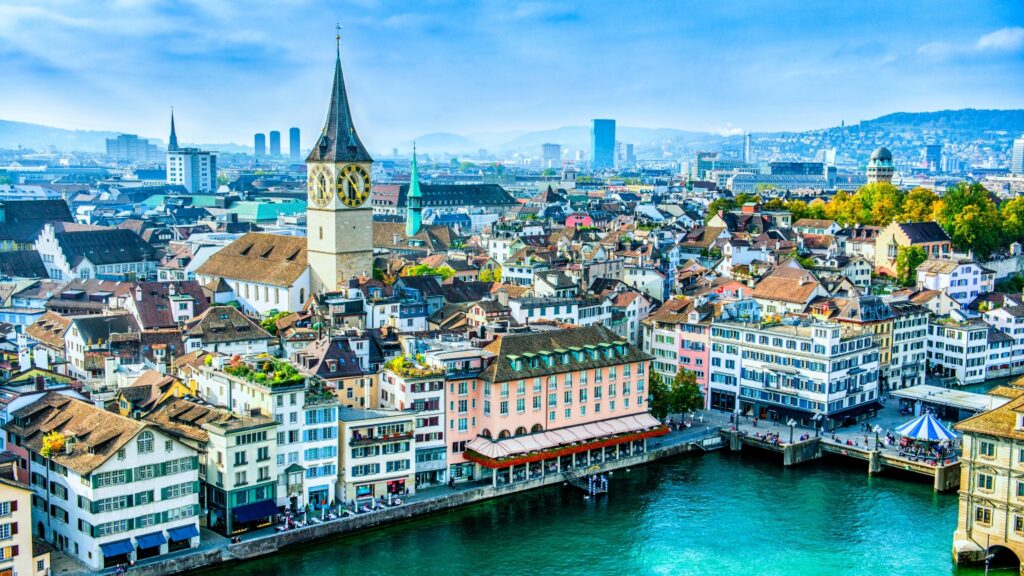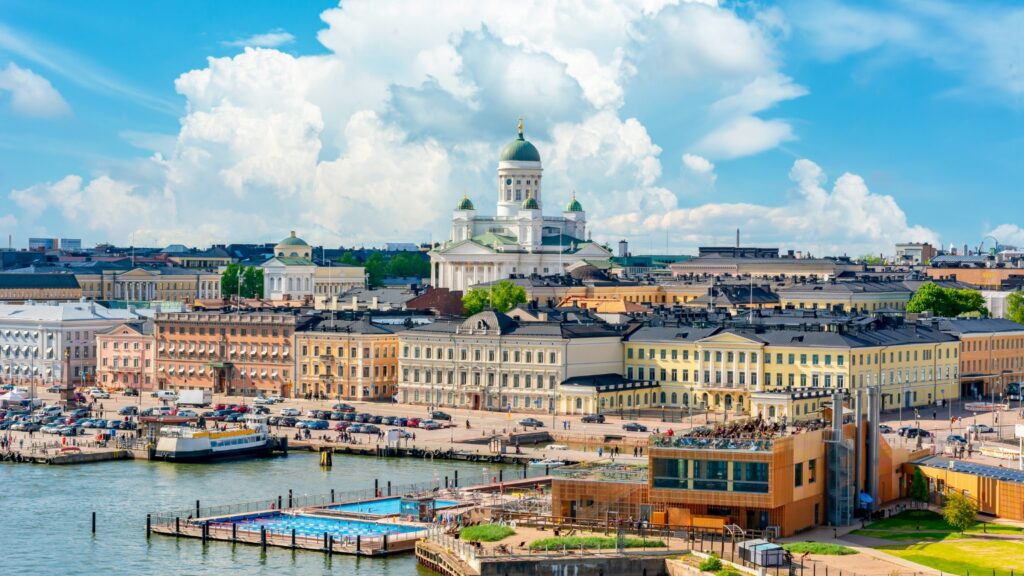In an ever-evolving world, the quest to understand what makes societies thrive has become paramount. The World Happiness Report 2024, assessing global happiness through six crucial factors—GDP per capita, life expectancy, social support, freedom, generosity, and perceptions of corruption—provides a detailed overview of why certain countries top the list. This year, a diverse range of nations with unique approaches to fostering happiness and well-being has been highlighted. Here’s a closer examination of what makes these countries the happiest in the world.
10. Australia

Australia’s formula for happiness lies in its blend of strong economic foundations and a robust social safety network. With a GDP per capita of USD 54,907, Australians enjoy a quality of life that is enhanced by universal healthcare and comprehensive pension schemes, contributing to a high life expectancy of 83.2 years. The Australian ethos deeply embeds a connection with nature, fostering a balanced lifestyle that includes outdoor activities from surfing on pristine beaches to exploring expansive national parks. Additionally, Australia’s vibrant cultural scene and commitment to inclusivity and diversity further enhance its citizens’ happiness.
9. New Zealand

New Zealand, ranking ninth, emphasizes community and social connections as core elements of happiness. Kiwis enjoy a life expectancy of 82.1 years, supported by a healthcare system that promotes preventive care and mental well-being. The recent governmental increase in mental health funding illustrates a dedication to these principles. New Zealand’s landscape itself—a draw for both tourists and locals—plays a significant role in the national well-being, offering opportunities for leisure and adventure that integrate seamlessly with everyday life.
8. Luxembourg

Luxembourg, though small, demonstrates that size does not limit happiness. It boasts a staggering GDP per capita of USD 115,700, which supports a high standard of living, including access to top-tier public services like healthcare and public transportation. The country’s strategic economic policies have fostered a balanced distribution of wealth, which is crucial in minimizing social disparities and enhancing overall satisfaction among its residents.
7. Switzerland

Switzerland excels in multiple happiness indicators, including a GDP per capita of USD 83,832 and a life expectancy of 83.7 years. The nation is known for its political stability, robust legal systems, and a unique direct democracy that allows citizens extensive involvement in their governance. These factors, combined with stunning natural landscapes and a commitment to sustainability, create an environment where citizens feel empowered, secure, and integrated into their community.
6. Norway

Norway’s happiness is underpinned by its natural wealth and a strong welfare system that ensures comprehensive social support. With a GDP per capita of USD 75,505, Norwegians enjoy universal healthcare and educational opportunities that are among the best in the world. The country’s deep respect for the environment is mirrored in its policies and the daily lives of its people, enhancing a sense of national pride and personal well-being.
5. Sweden

Sweden is often seen as a benchmark for inclusive society and social equity. Its social support systems are extensive, covering health care, education, and social security, with a GDP per capita of USD 54,628. Swedes have a life expectancy of 82.7 years, facilitated by an environment that values public health and well-being. Furthermore, Sweden’s active promotion of gender equality and human rights reinforces a societal framework where all individuals can feel valued and supported.
4. Netherlands

The Netherlands is characterized by its liberal social policies and high GDP per capita of USD 53,582. Dutch citizens benefit from an innovative urban design that prioritizes cycling and public transport, significantly enhancing urban livability and sustainability. The country’s focus on community-driven initiatives and cultural inclusivity fosters a strong sense of belonging and security among its residents, contributing greatly to their overall happiness.
3. Iceland

Iceland’s unique geographic and social attributes contribute to its high happiness ranking. The nation’s approach to equality and community involvement is exceptional, with almost non-existent crime rates and a strong sense of mutual trust among its citizens. Additionally, Iceland’s commitment to sustainable living and the use of renewable resources provides a model of how environmental stewardship can enhance societal well-being.
2. Denmark

Denmark consistently ranks near the top for its comprehensive welfare policies and strong community ethos. The Danish welfare model, combined with a GDP per capita of USD 63,829, ensures all citizens have access to high-quality services, fostering a sense of security and equality. The concept of “hygge,” emphasizing comfort and contentment, plays a central role in Danish culture, enriching the lives of its citizens.
1. Finland

For several years running, Finland has been named the happiest country in the world. With a GDP per capita of USD 53,471, Finns enjoy excellent social services, low levels of corruption, and a high degree of autonomy. The Finnish education system, emphasizing individual well-being and community involvement, is a cornerstone of this happiness, as are the cultural practices that encourage outdoor activities and social cohesion.
Conclusion
The 2024 World Happiness Report illuminates how these top ten countries leverage economic stability, robust healthcare, progressive education, and cohesive community practices to create environments ripe for happiness. Their varied approaches provide valuable lessons on fostering an atmosphere where citizens can thrive. As we reflect on these insights, it becomes clear that achieving national happiness extends beyond economic measures to include nurturing the human spirit through connectivity, respect, and well-being.




